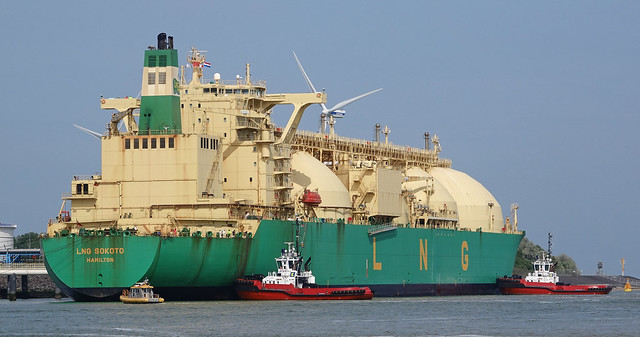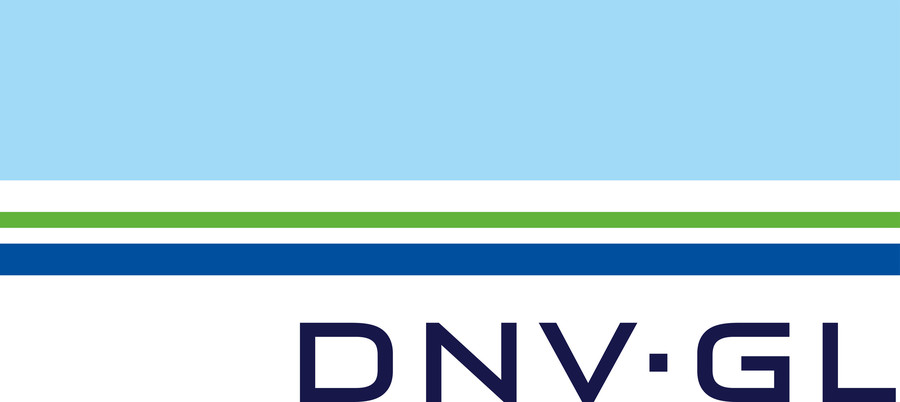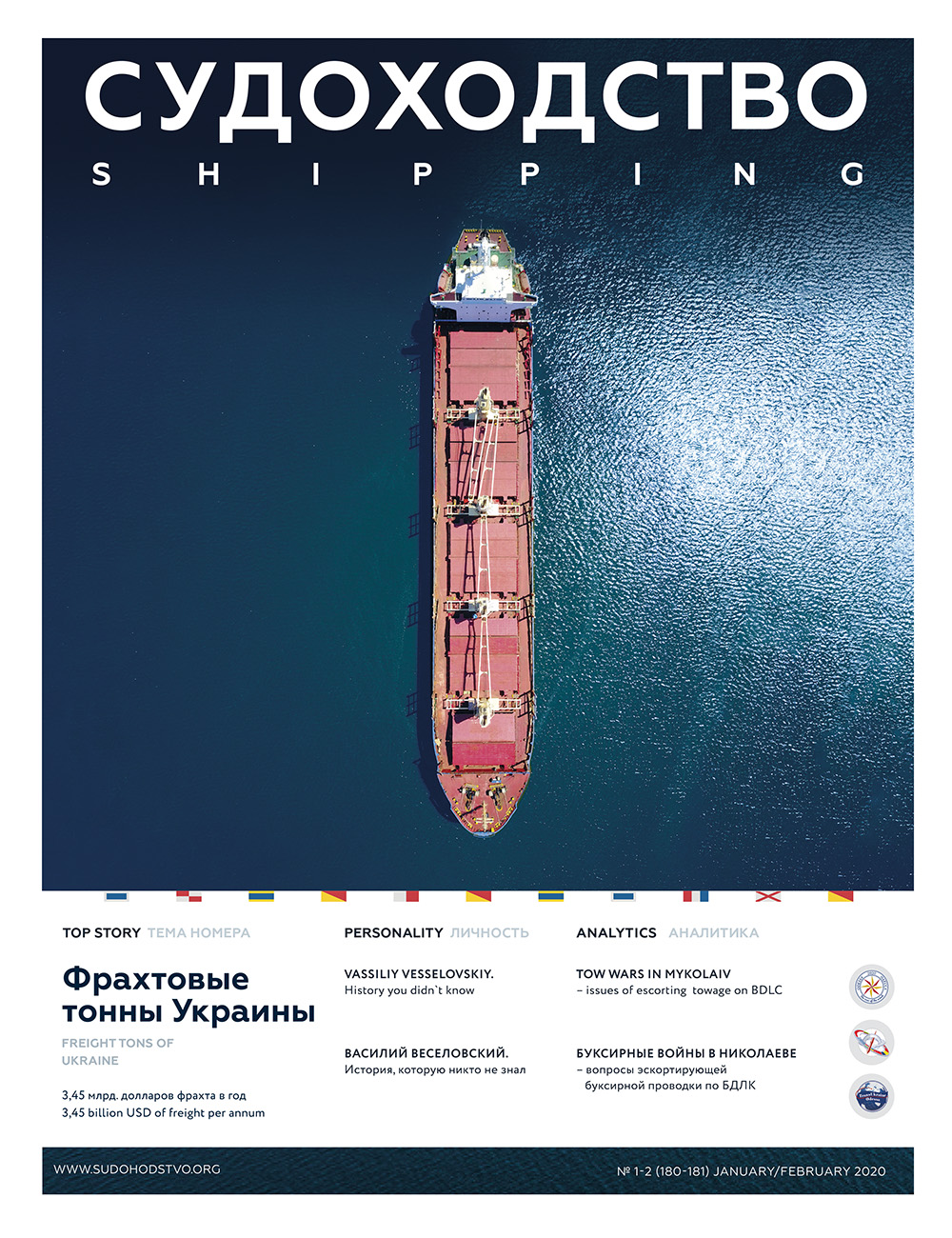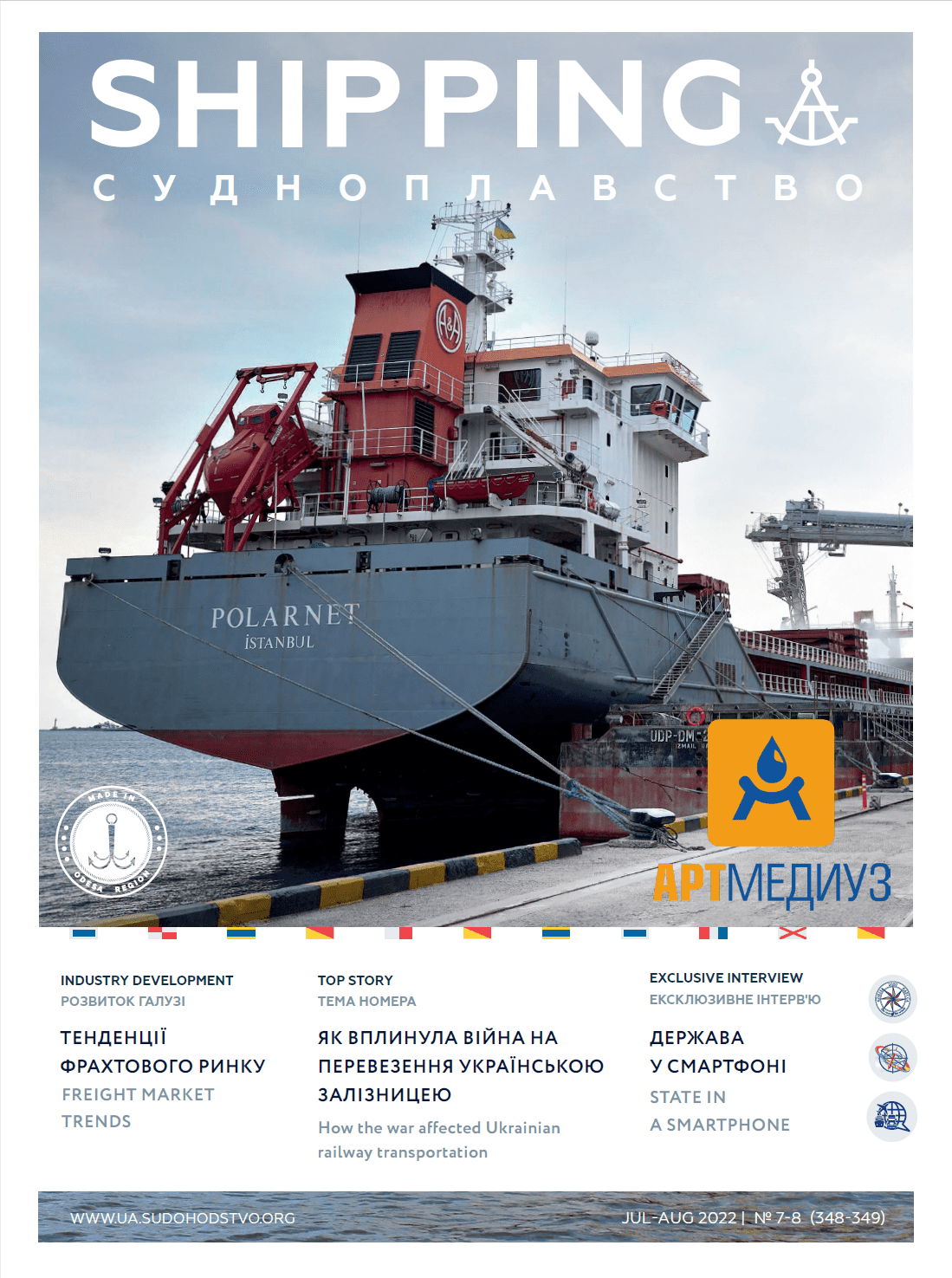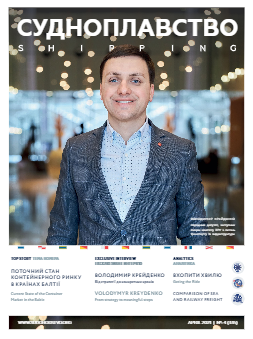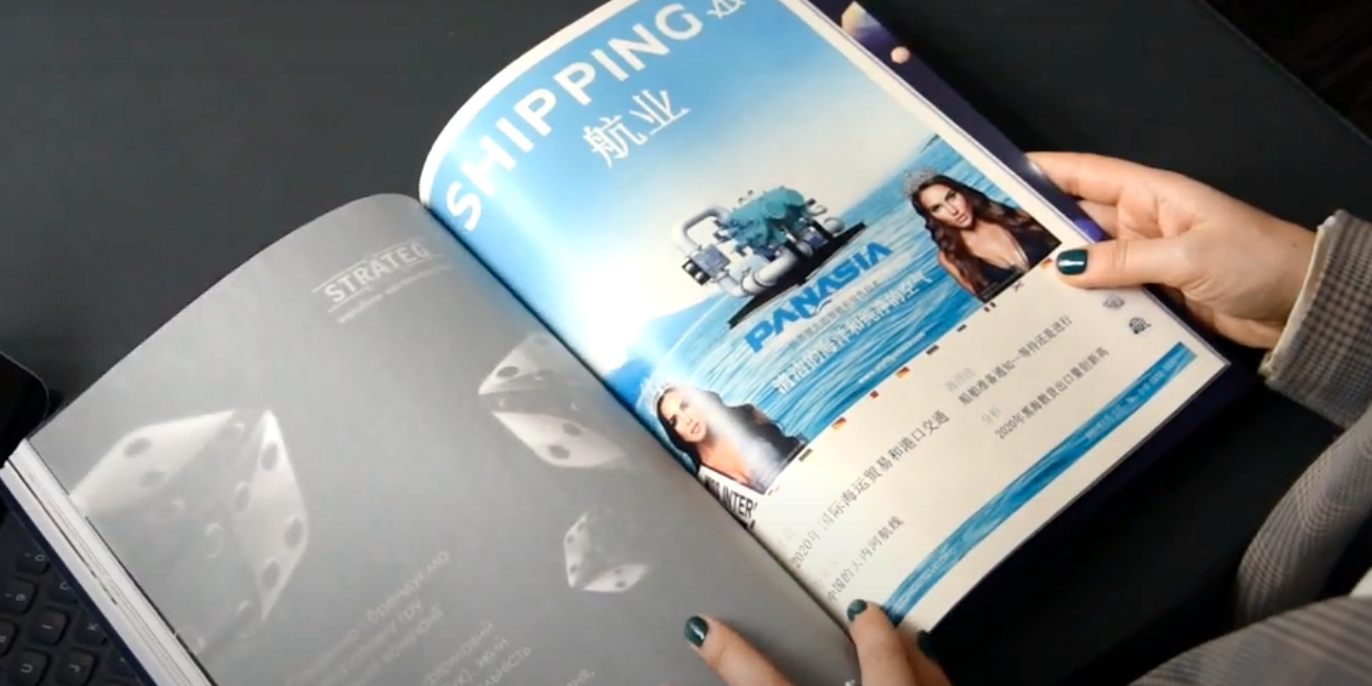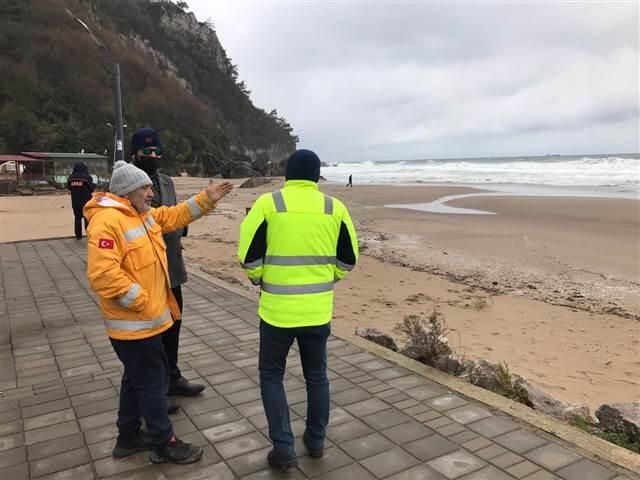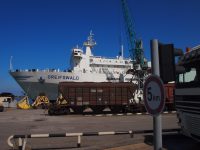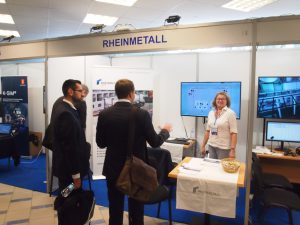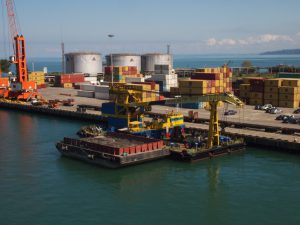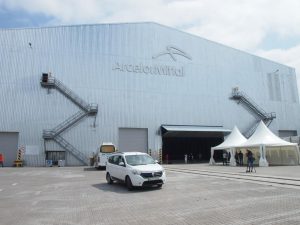The President of Ukraine Vladimir Zelensky 30 2020 signed on December the year the Law “On Inland Water Transport”, 1054-IX, which Parliament adopted on the 3d of December 2020.
The document defines the legal, economic and organizational basis for the activity of inland waterway transport.
The law determines the working conditions of water transport and order of use of waterways. The issues of sunken on inland waterways property, the liability of ship-owners for violation of legislation on inland waterway transport, and the like are regulated.
The law implements the requirements of the directives and regulations of the European Union in accordance with the Association Agreement with the EU.
The Office of the President reports that only 1% of cargo in Ukraine is transported by rivers. The adopted law, according to the Office, will contribute to the emergence of a competitive market for river freight transport in the country. According to the estimates of the Ministry of Infrastructure, this will increase the cargo traffic up to 30 million tons per year and create an economic effect for the state in the amount of about UAH 13-16 billion annually. In addition, the use of waterways will save money on road repairs.
It should be reminded that some Ukrainian business circles opposed the signing by the President of the Law «On Inland Water Transport». So the Hero of Ukraine, agricultural holding Nubilon CEO Oleksiy Vadatursky called Zelensky President to veto the law. Mr. Vadaturskiy was supported by Ukrsudprom, the Association of shipbuilders and the State Regulatory Service of Ukraine. They sent their special messages to the President.
In the letter of Ukrsudprom dated December 24, 2020, it is said in particular that the draft law No. 1182-1-d «On Inland Water Transport» is the last nail in the coffin of shipping under the State Flag of Ukraine, shipbuilding of Ukraine and the bunkering market on inland waterways ways. In addition, these are billions of dollars in losses of the state budget and deterioration of the ecological and epidemiological situation in Ukraine. It is also a flourishing of terrible shadow markets and schemes.
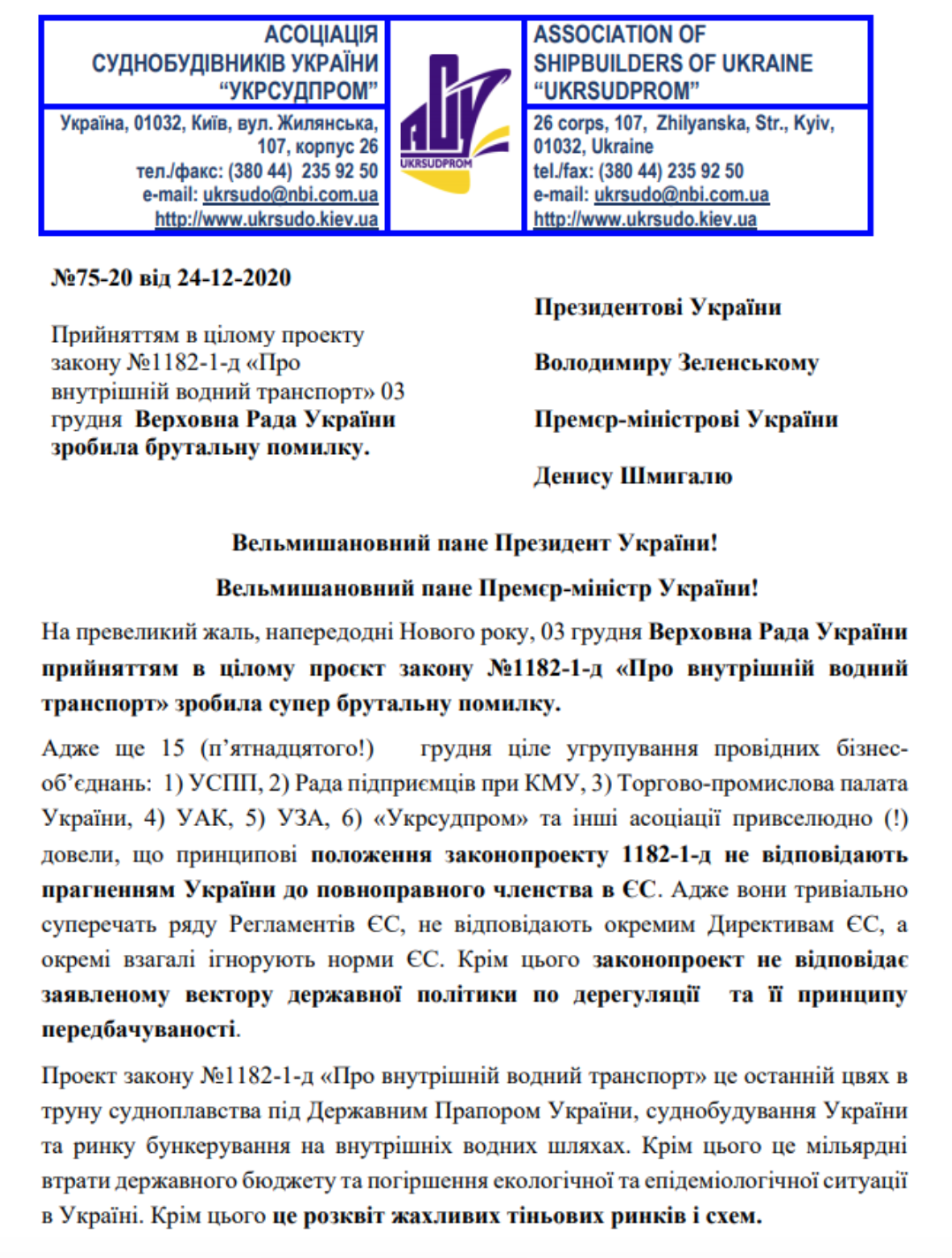
The remarks expressed in the letters of opponents of the Law were commented on by People’s Deputy of Ukraine Volodymyr Kreidenko, Deputy Chairman of Committee on Transport and Infrastructure.
So, for example, Oleksiy Vadatursky noted that the application of the norms that are spelled out in the law will have negative consequences for the ecology, economy and overall security of Ukraine as a maritime power.
In particular, he notes, subparagraph 2 of paragraph 4 of the Final and Transitional Provisions of the Law allows the discharge of sewage in the movement of ships along the entire length of the Dnieper, including in the Kiev zone.
To this Vladimir Kreidenko told our edition the following:
“Regarding the discharge of impurities (in the adopted draft law they are called “ waste water ”), I would quote the text of the Final and Transitional Provisions: “ Discharge from ships of waste water is permitted in the territorial sea, inland sea waters, on other public waterways, in the seaports without restrictions on the course and during anchorage of ships, subject to their processing and decontamination in ship installations in accordance with the requirements of the International Convention for the Prevention of Pollution from Ships, 1973 and the Protocol of 1978 thereto, or in accordance with the technical requirements for inland navigation vessels, must comply with the law of the European Union ”.
In addition, the bill introduced the following amendments to the Code of Administrative Offenses of Ukraine “Dumping garbage and other items overboard of a sea, river, small, sports vessel or jet ski — entails the imposition of a fine in the amount of twenty-five tax-free minimum incomes of citizens”.
From the above, it follows that it is indeed permitted to discharge wastewater into rivers, but this is permitted only under the condition of disinfection and purification of this sewage according to all European standards.
Note, industry experts say that the transportation of goods by rivers, except that it is cheap, also the most environmentally friendly form of the transport.
Oleksiy Vadaturskiy also noted in his address that the norm of the Law on the preservation of the excise duty on fuel for shipping actually legalized the smuggling of fuel, due to the difference in price of 80% over the 12-mile zone and in Ukraine.
Volodymyr Kreidenko, Deputy Chairman of Committee on Transport and Infrastructure, commented on this remark for Shipping:
“I want to emphasize that by the first reading in Part 1 of Art. 1 bill really existed a definition of the concept of «cabotage voyage», which legalized the exit of a foreign ship abroad to replenish ship supplies (in particular, fuel) without customs clearance and payment of excise duty. However, in the final version this was corrected, and the concept of “cabotage voyage” now looks like this: “voyage of a vessel between Ukrainian ports (terminals) or destinations located on the territory of Ukraine, without carrying out cargo operations, bunkering, replenishment of ship supplies for outside the territory of Ukraine”.
About other remarks
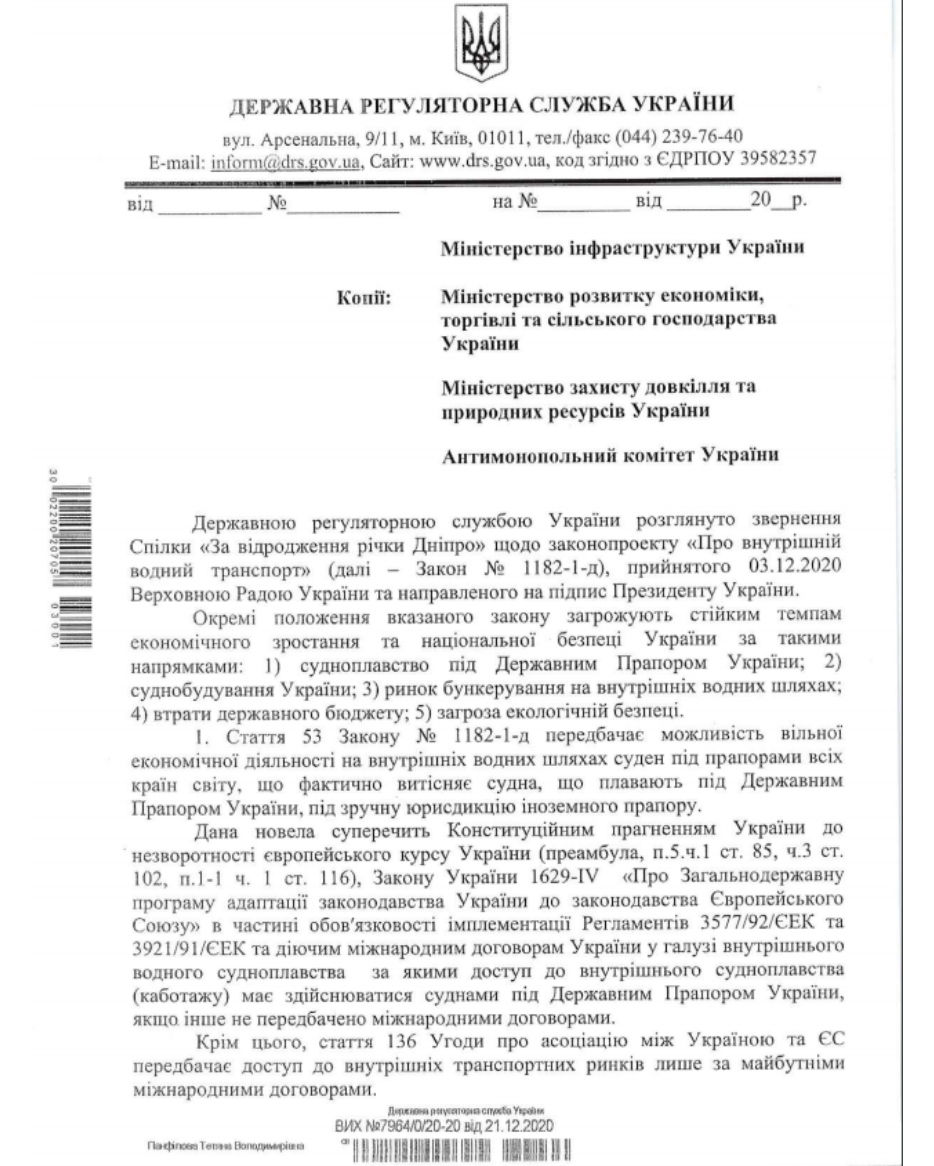
Vladimir Kreidenko says the following: “For example, in the initial version of the draft law there was a norm that the soil that is removed as a result of river dredging can be uncontrollably removed and sold by a business entity performing work to ensure the dimensions of the navigable channel. This actually gave the green light to steal subsurface / sand. However, during the preparation of the bill and to finally voting I succeeded amendment, according to which the ground, which will be withdrawn as a result of dredging the rivers, can be implemented now only on the basis of a special permit, and the volume of the soil (mineral resources), which will be withdrawn as a result of road works and will not be used for their implementation, will be calculated in accordance with the methodology approved by the central executive authority, ensuring the formation of state policy in the field of inland water transport”.
However, the list of comments from experts and river transport operators to the Act in so great that, apparently, we expect further discussions about its effectiveness for the Ukrainian economy.


